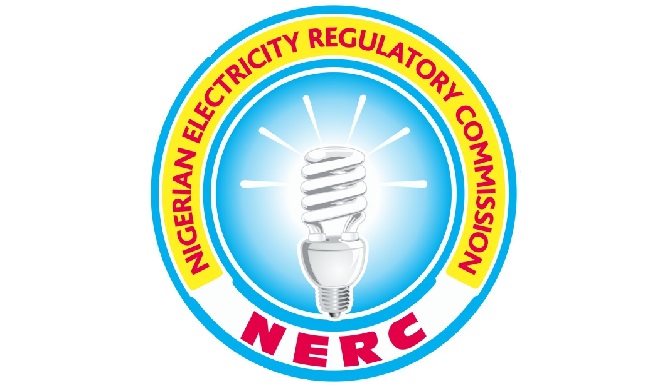The Nigerian power sector is faced with several hurdles, especially funding constraints, which has for decades has made the electricity supply so low that both the consumers and the national economy have largely been paying huge costs to meet the lingering supply shortfall.
As part of its efforts to stem this worrisome tide and provide power to under-served and un-served rural communities, the Nigerian Electricity Regulatory Commission (NERC), rolled out the Mini Grid regulation in 2018.
The regulation permits industries and business entities to set up mini grids using renewable energy to power communities that are yet to be connected to the national power grid, and bill the users through a business model.
All it takes is to have a solar photo voltaic (PV) base station, or a combination of solar and wind technology, or better still, a small hydropower (SHP) source. The residents in the communities are connected to this source and more sustained power is provided to the users with metering technology for prompt revenue collection.
The Rural Electrification Agency (REA), which originally connects rural communities to the national grid through its Rural Electrification Fund (REF), has suddenly diverted to the use of contractors to build mini grids in such communities and make the contractors bill consumers and manage the grids.
The Federal Ministry of Power has built two mini grids between 2016 and 2019 in Pakau, Kaduna State and Torankawa in Sokoto State to demonstrate the potential of the model.
Daily Trust recently reported that the Torankawa hybrid mini grid has been a success story as some customers told our reporters in December that they had constant power for nearly one year since it was commissioned.
Worried about not getting enough power to consumers and the dearth of fund to accelerate connectivity to communities, the Abuja Electricity Distribution Company (AEDC) in 2019 joined the race for mini grid projects.
AEDC is one of the 11 Distribution Companies (DisCos) and it serves electricity consumers in four states comprising Kogi, Abuja, Nasarawa and Niger. In September 2019, AEDC signed a pact with the United States Trade and Development Agency (USTDA) on mini grids.
Providing details about these projects, the Managing Director of CEC Africa and investor in AEDC, Engineer Emmanuel Katepa, said that investors in the DisCo were convinced that mini grids are important part of the mix for power provision across Africa.
According to a 2019 report by the Rocky Mountain Institute in the United States, there is a potential for about 4,000 mini grids in Nigeria. Thus, it becomes imperative for Nigerian firms to take advantage of this to solve the power supply needs and also create business platforms that will create more jobs.
Expatiating on the benefits of a mini grid to national development, Katepa said mini grid is a localized solution, making use of whatever resources are available at the particular place. “Quite importantly, unlike the big central distribution networks, there is the probability that there is sense of ownership with the communities.
“And there is potential for collaboration because this something we can build with the communities we are serving. It is a very important part of strategy for building up the grid going forward,” he noted.
One major problem of the 11 DisCos is the slow process of reducing the Aggregate Technical, Commercial and Collection (ATC&C) losses. Surveys have shown that either many customers do not pay their bills or they engage in energy theft, among other practices.
But Katepa, who is an expert in power system management, said with mini grids, payment can be made a little bit flexible to encourage customers to pay their bills promptly.
He explained: “The other success factor for mini grids is the possibility of making the payments a lot more flexible and a lot more in line with the economic realities of the poorest in our societies. To go out and expect that everybody will give you N10,000 or N20,000 at the end of the month is a bit of a tall order.
“However, if a person has the ability to pay for what they are going to be able to consume for that day, they can plan around that. That is an important aspect of payment mechanisms that we foresee going into this mini grid solutions,” the industry expert stressed.
At the11th edition of the International Conference on Energy, Power Systems Operations and Planning (ICEPSOP 2020) which held recently in Abuja, the need to embrace mini grids was the focal point for experts from the United States of America, South Africa, Ghana and Nigeria.
Chairman of NERC, Professor James Momoh, during one of the conference tutorials on Micro Grid, Smart Grid and Cyber Physical System committed to ensuring that modern power system technology would be taught to Nigerian students in the digital age so they can innovate in the energy sector.
Momoh also at a poster session lectured secondary school students and undergraduates on how they can develop themselves to become the genius that they are meant to be.
He encouraged the students by sharing his academic background with them as he admonished them on building capacity for mini grid potentials and other prospects in Nigeria.
The Director General of the Energy Commission of Nigeria (ECN), Prof. Eli Bala at the recent conference where he chaired a session on the potentials of hydropower and biomass energy resources harped on the need for more private developers to embrace these technologies for electricity supply.
Along with researchers from universities in South Africa and Nigeria, Prof. Bala emphasized on how the use of hydro resources and biomass can boost power systems operations when they are deployed.
Similarly, the Executive Vice Chairman of the National Agency for Science and Engineering Infrastructure (NASENI), Prof. Sani Haruna, chaired a forum of vice chancellors and university presidents on how to drive university-industry partnership in sustainable energy power development.
To develop modern mini and micro grids technology that would solve the power needs in Nigeria, Haruna spoke about how more collaboration can help to develop the power sector. He also urged students and researchers in the academia to boost their research capabilities on solar power technologies.
In a communiqué issued to wind up the weeklong conference, experts agreed that there was the need to invest more in mini grid development in Nigeria. To effectively attain this, they also advocated for the funding of capacity building with collaborations from industry and university communities.




